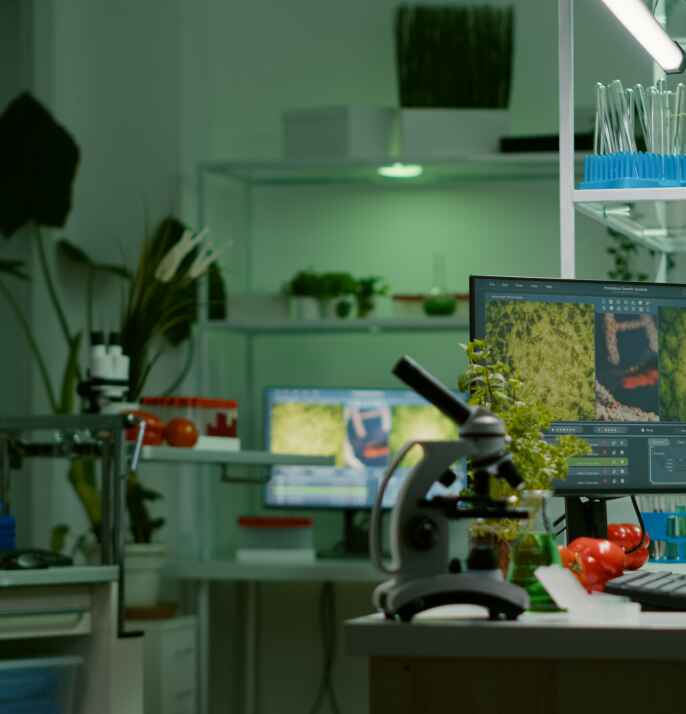B.Tech in Computational
Biology Program
Overview
Computational biology is the application of Computer science, Statistics, and Mathematics to not only store, analyse and utilize biological information but also uncover new biological knowledge through computational approaches to develop products of commercial value in medical, pharmaceutical, industrial and agricultural industries, academia, and clinics.
The global computational biology and bioinformatics market is projected to reach USD 21.8 billion by 2026 from USD 10.7 billion in 2021, growing at a CAGR of 15.2% The field includes foundations in Computer science (algorithm design, AI/ML), Applied mathematics, Statistics, Biochemistry, Molecular biology, Genetics, Genomics, Biophysics, Ecology, Evolution, Anatomy, Neuroscience, etc.
E-HR : India will digitize its health care delivery system by building registries of healthcare providers and facilities by providing unique health identity to all residents, and ensuring universal access to health care through healthcare informatics . Established companies in biotech, biomedical, pharmaceutical and hundreds of startups are struggling to find trained computational biologists or bioinformaticians.
Specializations
The Program will offer 5 specializations for students keen to pursue career in a particular domain –

Computational Drug Discovery
The global computer-aided drug discovery market is expected to be valued at $7,914.2 million by 2028, surging from $2,741.1 million in 2020 at a noteworthy CAGR of 15.0%. Emerging concepts of artificial intelligence (AI) and big data in computer-aided drug discovery are driving the market. Artificial intelligence can be significantly utilized in multiple parts of the drug discovery value chain such as drug design, chemical synthesis, drug screening, drug repurposing, pharmacology and clinical practice.

Genomic Data Science
The global precision medicine market size valued at USD 66.1 billion in 2021 is expected to reach USD 175.64 billion by 2030 and poised to grow at a compound annual growth rate (CAGR) of 11.5% during the forecast period 2022 to 2030. The increasing use of pharmacogenomic research for the development of precision medicine, and the increasing partnerships and collaborations between various life sciences and informatics companies for the development of advanced bioinformatics tools and software are major factors contributing to the growth of computational genomics.

Health Informatics
The Indian healthcare sector is expected to record a three-fold rise, growing at a CAGR of 22% between 2016–2022 to reach US$ 372 billion in 2022. The need for healthcare informatics (HI) has emerged to store and manage huge data regarding various therapeutics and diagnosis methods in clinical practice across the globe. Major players in the healthcare informatics market are Accuro Healthcare Solutions, Allscripts, Agfa HealthCare Corp, Axiom Resource Management Inc., Cardinal Health, Cerner Corp., Benchmark Systems, CNSI, Cognizant Technology Solutions, Companion Technologies, and many more.

BioImage Analytics & Decision Support
The global bioimage analytics market size was valued at USD 3.0 billion in 2022 and is expected to grow at a compound annual growth rate (CAGR) of 7.7% from 2023 to 2030. A rise in demand for diagnostic imaging software in fields, such as cardiology, neurology, oncology orthopedics, and urology are likely to contribute to the market growth. In addition, continuous developments in the field of computer-aided diagnosis are anticipated to bolster the demand for trained graduates in this area. Major companies operating in this area include GE Healthcare, Fujifilm, Shimadzu, Philips Healthcare, Siemens Healthineers and Toshiba Medical Systems Corporation.

Pathogens Genomics
Pathogen genomics refers to the investigation of the genetic make-up of infection causing organisms. The COVID-19 pandemic demonstrated the significance of pathogen genomics. Without that knowledge diagnostic tests such as RT PCR or mitigating measures such as vaccines could not have been developed. In the year 2020, the global genomics market saw an unprecedented growth of 22.3%. In fact, it is projected to grow from $27.81 billion in 2021 to $94.65 billion in 2028 at CAGR of 19.4%. The Centers for Disease Control and Prevention (CDC), USA, has declared $90 million in funding resources to support Pathogen Genomics Centers of Excellence. In India also, during the pandemic, the Ministry of Health and Family Welfare established the INSACOG (Indian SARS-CoV-2 Genetics Consortium) to analyze and monitor the circulating strains of the virus. Advances in high-throughput sequencing, molecular technologies and bioinformatic tools have greatly facilitated investigating pathogen genomes for surveillance, diagnosis and controlling infections. Pathogen genomics is a pivotal area that can save millions of lives from infectious diseases and prevent the next outbreak from becoming a pandemic.

Computation in Agriculture
The precision farming market is expected to grow from USD 8.5 billion in 2022 to USD 15.6 billion by 2030, at a CAGR of 7.9%. Traditionally agriculture industry was highly dependent on manual labour for different activities; however, with technological advancements, automation is enabling the industry players to achieve high output in less time and inputs. In addition to smart sensors, drones, GPS the use of AI-based applications and tools can help farmers in controlled and accurate farming by providing required information or guidance regarding the use of fertilizers, water management, crop rotation, pest control, type of crop to be grown as per soil, nutrition management, optimum planting, etc.

Biological Systems Modelling
Biomanufacturing green products in cell factories through synthetic biology would require developing quantitative predictive models of cell metabolism so that biosynthetic pathway engineering interventions can successfully implemented. The biological systems modelling domain, therefore, involves integration of transcriptomic, proteomic, and metabolomic data through machine-learning approaches to predict bioengineering outcomes towards biomanufacturing green products, biomaterials and drugs.
Technical Competencies: The program will
deliver following competencies

Biological data generation technologies

Statistical methods in the context of molecular biology, genomics, medical, and population genetics research

Bioinformatics tools and their usage

Computing requirements appropriate to solve a given scientific problem (e.g., system, process, algorithm, component or program; define algorithmic time and space complexities and hardware resources required to solve a problem).

Command line and scripting based computing skills appropriate to the discipline

Construction of software systems of varying complexity based on design and development principles

Local and global impact of bioinformatics and genomics on individuals, organizations, and society.

Professional, ethical, legal, security, and social issues, and responsibilities in the workplace

Effective communication of bioinformatics and genomics problem/issue/topics with a range of audiences

Teamwork to accomplish a common scientific goal. Engage in continuing professional development in computational biology
Potential Job Profiles
Some of the prominent players operating in the market
Indian Companies
Strand Life Sciences
Rasa Life Science Informatics
MarksMan Healthcare Communications
Xcode Life Sciences
Natural Text
Helix Biosciences
Clevergene
Nucleome Informatics
AgriGenome Labs
BD Biosciences
Biogenick
Genotypic Technology
Semester 1
| S.No. | Code | Course | L | T | P | Credits |
|---|---|---|---|---|---|---|
| 1 | BT1101/ BT1102 | Basic Mathematics I / Introduction to Biology* | 3 | 0 | 0 | 3 |
| 2 | BT1103 | World of BT & CB | 1 | 0 | 0 | 1 |
| 3 | BT1104 | Chemistry of Biomolecules | 3 | 0 | 2 | 4 |
| 4 | BT1106 | Biological Systems: Pathways & Signaling | 3 | 0 | 0 | 3 |
| 5 | CS1101 | Introduction to Computing | 2 | 1 | 2 | 4 |
| 6 | CE1101 | Earth and Environmental Sciences | 2 | 0 | 0 | 2 |
| 7 | HS1101 | English | 0 | 3 | 0 | 3 |
| 8 | HS1102 | Media Project | 0 | 0 | 2 | 1.5 |
| 9 | ET1101 | Introduction to Entrepreneurship | 0 | 0 | 3 | 1 |
| 10 | FL1103 | French- I | 0 | 2 | 0 | 0.5 |
| Total Credits | 23 |
*For students with Bio or Math in 10+2
Semester 2
| S.No. | Code | Course | L | T | P | Credits |
|---|---|---|---|---|---|---|
| 1 | BT1206 | Molecular Genetics | 3 | 0 | 2 | 4 |
| 2 | BT1210 | Biophysics | 2 | 0 | 2 | 3 |
| 3 | CB1201 | Programming Workshop (C++) | 0 | 0 | 2 | 1 |
| 4 | CB1202 | Programing Workshop (Linux) | 0 | 0 | 2 | 1 |
| 5 | MA1202 | Linear Algebra & Complex Analysis | 3 | 1 | 0 | 4 |
| 6 | CS1202 | Discrete Mathematics | 2 | 0 | 0 | 2 |
| 7 | CS1002 | Data Structures | 3 | 0 | 2 | 4 |
| 8 | ET1201 | Entrepreneurship Practice | 1 | 0 | 0 | 1 |
| 9 | HS1202 | Professional Ethics | 0 | 1 | 0 | 1 |
| 10 | SC1201 | SDGs And Our Career | 1 | 0 | 0 | 1 |
| 11 | FL1203 | French-II | 0 | 2 | 0 | 0.5 |
| Total Credits | 22.5 |
Semester 3
| S.No. | Code | Course | L | T | P | Credits |
|---|---|---|---|---|---|---|
| 1 | CB2103 | Fundamentals of Data Science | 1 | 0 | 2 | 2 |
| 2 | CB2104 | Computational Biology | 3 | 0 | 2 | 4 |
| 3 | CB2105 | Data Engineering & Visualization Workshop [ETL Pipeline & Tableau] | 0 | 1 | 2 | 2 |
| 4 | CB2106 | Programming Workshop (Python & BioPython) | 0 | 0 | 2 | 1 |
| 5 | MA2103 | Probability & Statistics | 3 | 1 | 0 | 4 |
| 6 | CS2102 | Design and Analysis of Algorithms | 3 | 0 | 2 | 4 |
| 7 | ET2101 | Lean Start-up (Fractal) | 1 | 0 | 0 | 1 |
| 8 | HS2102 | Principles of Economics (Fractal) | 3 | 0 | 0 | 1.5 |
| 9 | SC2102 | Sustainability and AI | 1 | 0 | 0 | 1 |
| 10 | FL2103 | French-III | 0 | 2 | 0 | 0.5 |
| Total Credits | 21 |
Semester 4
| S.No. | Code | Course | L | T | P | Credits |
|---|---|---|---|---|---|---|
| 1 | BT2216 | Omic Technologies | 3 | 0 | 2 | 4 |
| 3 | CB2207 | Structural Bioinformatics & Drug Discovery | 3 | 0 | 2 | 4 |
| 3 | CB2208 | Biological Database Management | 3 | 0 | 2 | 4 |
| 4 | CB2209 | ML Workshop | 0 | 0 | 2 | 1 |
| 5 | CS3102 | Machine Learning | 3 | 0 | 0 | 3 |
| 6 | HS2201 | Design Thinking | 1 | 0 | 2 | 2 |
| 7 | HS2202 | Financial Accounting | 3 | 0 | 0 | 1.5 |
| 8 | SC2201 | Water and Us | 1 | 0 | 0 | 1 |
| 9 | FL2203 | French-IV | 0 | 2 | 0 | 0.5 |
| Total Credits | 21 |
Semester 5
| S.No. | Code | Course | L | T | P | Credits |
|---|---|---|---|---|---|---|
| 1 | BT3125 | Microbes and Immune Systems | 3 | 0 | 2 | 4 |
| 2 | CB3110 | NLP Workshop | 0 | 0 | 2 | 1 |
| 5 | CB3111 | Computational Genomics & Systems Biology | 3 | 0 | 2 | 4 |
| 4 | CB3112 | Programming Workshop (R) | 0 | 0 | 2 | 1 |
| 5 | CS3105 | Object Oriented Programming | 2 | 0 | 2 | 3 |
| 6 | CS3106 | Web Tech Workshop | 0 | 0 | 2 | 1 |
| 7 | CS3126 | NLP | 3 | 0 | 0 | 3 |
| 8 | CB30XX | Elective – I | 3 | 0 | 0 | 3 |
| 9 | CB30XX | Elective – II | 3 | 0 | 0 | 3 |
| 10 | HSS Elective | HSS Elective -I | 2 | 0 | 0 | 2 |
| Total Credits | 25 |
Semester 6
| S.No. | Code | Course | L | T | P | Credits |
|---|---|---|---|---|---|---|
| 1 | BT3228 | Research Methods & IPR | 2 | 0 | 0 | 2 |
| 2 | CB3213 | Algorithms in Bioinformatics | 2 | 0 | 2 | 3 |
| 3 | CB3214 | Programming Workshop (Java & BioJava) | 0 | 0 | 2 | 1 |
| 4 | CB3215 | Generative AI in Life Sciences | 3 | 0 | 2 | 4 |
| 5 | CS3206 | Web Tech Workshop | 0 | 0 | 2 | 1 |
| 6 | CS3223 | Deep Neural Networks | 3 | 0 | 2 | 4 |
| 7 | CB30XX | Elective – III | 3 | 0 | 0 | 3 |
| 8 | CB30XX | Elective – IV | 3 | 0 | 0 | 3 |
| 9 | HS3201 | Introduction to Professional Development (Fractal) | 2 | 0 | 0 | 2 |
| 10 | HSS Elective | HSS Elective-II | 2 | 0 | 0 | 2 |
| Total Credits | 25 |
Semester 7
| S.No. | Code | Course | L | T | P | Credits |
|---|---|---|---|---|---|---|
| 1 | BT4129 | Employability Skills | 1 | 0 | 1 | 1.5 |
| 2 | CB40XX | Elective – V | 3 | 0 | 0 | 3 |
| 3 | CB40XX | Elective – VI | 3 | 0 | 0 | 3 |
| 4 | CB40XX | Elective-VII | 3 | 0 | 0 | 3 |
| 5 | HSS Elective | HSS Elective-III | 2 | 0 | 0 | 2 |
| Total Credits | 12.5 |
Semester 8
| S.No. | Code | Course | L | T | P | Credits |
|---|---|---|---|---|---|---|
| 1 | PR4000 | Research Project (Industrial Internship/R&D Institute with major research project) | 0 | 0 | 30 | 15 |
| Total Credits | 15.0 |
Total Credits: 23+22.5+21+21+25+25+12.5+15=165
Electives
| S.NO | Electives |
|---|---|
| 1 | Biomedical Imaging |
| 2 | Public Health Informatics |
| 3 | Clinical Trials – Design and Analysis |
| 4 | Evolutionary Genomics of Pathogens |
| 5 | Digital Twins & Disease Modelling |
| 6 | Computational BioTherapeutic Desgining |
| 7 | Population Genomics |
| 8 | AI in Pharmacovigilance |
| 9 | Digital Health Informatics |
| 10 | Infectious Disease Modelling |
| Semester 8 |
|---|
| Elective – IV |
| Elective – V |
| Year-4 Project |
| French – VIII(Optional) |
Semester 1
| Sr. No. | Code | Course | L | T | P | Credits |
|---|---|---|---|---|---|---|
| 1 | BT 1101/ BT 1102 | Basic Mathematics I / Introduction to Biology* | 3 | 0 | 0 | 3 |
| 2 | CS 1101 | Introduction to Computing | 2 | 1 | 2 | 4 |
| 3 | BT 1104 | Chemistry of Biomolecules | 3 | 0 | 2 | 4 |
| 4 | PH 1103 | Physics for BT & CB | 3 | 1 | 2 | 5 |
| 5 | ES 103 | Earth and Environmental Sciences | 2 | 0 | 0 | 2 |
| 6 | HS 1101 | English | 0 | 3 | 0 | 3 |
| 7 | HS 1102 | Media Project | 0 | 0 | 2 | 1.5 |
| 8 | FS 1103 | French- I | 0 | 2 | 0 | 0.5 |
| 9 | HS 1104 | Introduction to Entrepreneurship | 0 | 0 | 3 | 1 |
| Total Credits | 24 |
*For students with Bio or Math in 10+2
Semester 2
| Sr. No. | Code | Course | L | T | P | Credits |
|---|---|---|---|---|---|---|
| 1 | BT 1205 | Genetics | 2 | 1 | 2 | 4 |
| 2 | BT 1207 | Basic Mathematics II | 3 | 1 | 0 | 4 |
| 3 | CB 1201 | Introduction to Computational Biology | 1 | 0 | 0 | 1 |
| 4 | CS 1202 | Discrete Mathematics | 2 | 0 | 0 | 2 |
| 5 | EE 1204 | Basic Electronics & Applications | 2 | 1 | 2 | 4 |
| 6 | CH 1202 | Chemistry-II | 2 | 0 | 2 | 3 |
| 7 | CB 1202 | Programming Workshop (C++) | 0 | 0 | 2 | 1 |
| 8 | HS 1201 | Entrepreneurship Practice | 1 | 0 | 0 | 1 |
| 9 | HS 1202 | Professional Ethics | 0 | 1 | 0 | 1 |
| 10 | FL 1203 | French-II | 0 | 2 | 0 | 0.5 |
| Total Credits | 21.5 |
Semester 3
| Sr. No. | Code | Course | L | T | P | Credits |
|---|---|---|---|---|---|---|
| 1 | BT 2109 | Microbes & Immune Systems | 4 | 0 | 2 | 5 |
| 2 | BT 2110 | Cell & Molecular Biology | 3 | 0 | 2 | 4 |
| 3 | BT 2111 | Probability & Biostatistics | 2 | 1 | 2 | 4 |
| 4 | CS 2104 | Data Structures | 2 | 2 | 2 | 5 |
| 5 | HS 2101 | Lean Start-up (Fractal) | 1 | 0 | 0 | 1 |
| 6 | HS 2102 | Principles of Economics (Fractal) | 3 | 0 | 0 | 1.5 |
| 7 | HS 2103 | French-III | 0 | 2 | 0 | 0.5 |
| 8 | CB 2103 | Programming Workshop (Python & Bio Python) | 0 | 0 | 2 | 1 |
| Total Credits | 22 |
Semester 4
| Sr.No. | Code | Course | L | T | P | Credits |
|---|---|---|---|---|---|---|
| 1 | CB 2204 | Computational Biology | 3 | 0 | 2 | 4 |
| 2 | BT 2212 | Omic Technologies | 3 | 0 | 2 | 4 |
| 3 | CB 2205 | Biological Database Management | 2 | 0 | 2 | 3 |
| 4 | CS 2203 | Artificial and Computational Intelligence | 4 | 0 | 0 | 4 |
| 5 | CB 2206 | Programing Workshop (Linux) | 0 | 0 | 2 | 1 |
| 6 | HS 2201 | Design Thinking | 1 | 0 | 2 | 2 |
| 7 | HS 2202 | Financial Accounting | 3 | 0 | 0 | 1.5 |
| 8 | HS 2203 | French-IV | 0 | 2 | 0 | 0.5 |
| Total Credits | 20 |
Semester 5
| Sr.No. | Code | Course | L | T | P | Credits |
|---|---|---|---|---|---|---|
| 1 | CS 3101 | Design and Analysis of Algorithms | 3 | 0 | 2 | 4 |
| 2 | CB 3107 | Structural Bioinformatics & Drug Discovery | 3 | 0 | 2 | 4 |
| 3 | CS 3105 | Object Oriented Programming | 2 | 0 | 2 | 3 |
| 4 | CB 3108 | Programming Workshop (R) | 0 | 0 | 3 | 1.5 |
| 5 | CB 3009 | Elective – I | 3 | 0 | 0 | 3 |
| 6 | CB 3010 | Elective – II | 3 | 0 | 0 | 3 |
| 7 | HSS Electives | HSS Elective -I | 2 | 0 | 0 | 2 |
| Total Credits | 20.5 |
Semester 6
| Sr.No. | Code | Course | L | T | P | Credits |
|---|---|---|---|---|---|---|
| 1 | CB 3211 | Algorithms in Bioinformatics | 1 | 0 | 2 | 2 |
| 2 | CS 2202 | Machine Learning with Python | 3 | 0 | 2 | 4 |
| 3 | CB 3212 | Programming Workshop (Java & Bio Java) | 0 | 0 | 2 | 1 |
| 4 | CB 3213 | Computational Genomics | 2 | 0 | 2 | 3 |
| 5 | CB 3014 | Elective – III | 3 | 0 | 0 | 3 |
| 6 | CB 3015 | Elective – IV | 3 | 0 | 0 | 3 |
| 7 | PR 301 | Project-I (Literature review & seminar) | 0 | 0 | 5 | 2.5 |
| 8 | HSS Elective | HSS Elective-II | 2 | 0 | 0 | 2 |
| 9 | HS 3201 | Introduction to Professional Development (Fractal) | 2 | 0 | 0 | 2 |
| Total Credits | 22 |
Semester 7
| Sr.No. | Code | Course | L | T | P | Credits |
|---|---|---|---|---|---|---|
| 1 | BT 4227 | Research Methods & IPR | 3 | 0 | 0 | 3 |
| 2 | CB 4115 | Systems & Network Biology | 2 | 0 | 2 | 3 |
| 3 | CB 4016 | Elective – V | 3 | 0 | 0 | 3 |
| 4 | CB 4017 | Elective – VI | 3 | 0 | 0 | 3 |
| 5 | PR 402 | Project-II (Research work and presentation) | 0 | 0 | 10 | 5 |
| 6 | HSS Elective | HSS Elective-III | 2 | 0 | 0 | 2 |
| Total Credits | 19 |
Semester 8
| Sr.No. | Code | Course | L | T | P | Credits |
|---|---|---|---|---|---|---|
| 1 | PR 403 | Year-4 Project (Industrial Internship/R&D Institute with major research project) | 0 | 0 | 24 | 12 |
| Total Credits | 12.0 |
Total Credits: 24 + 23.5 + 21 + 20 + 20.5 + 22 + 19 + 12 = 162
Electives: Students will choose 4 electives from a particular track (specialization)
Specializations: Each specialization will have 4 electives and extensive project work
Projects-I, II, III: For students choosing a particular track, all 3 projects will be aligned to track/ specialization
| Semester 8 |
|---|
| Elective – IV |
| Elective – V |
| Year-4 Project |
| French – VIII(Optional) |
Semester 1
| Sr. No. | Code | Course | L | T | P | Credits |
|---|---|---|---|---|---|---|
| 1 | BT 1101/ BT 1102 | Basic Mathematics I / | 3 | 0 | 0 | 3 |
| Introduction to Biology* | ||||||
| 2 | CS 1101 | Introduction to Computing | 2 | 1 | 2 | 4 |
| 3 | BT 1104 | Chemistry of Biomolecules | 3 | 0 | 2 | 4 |
| 4 | PH 1103 | Physics for BT & CB | 3 | 1 | 2 | 5 |
| 5 | ES 103 | Earth and Environmental Sciences | 2 | 0 | 0 | 2 |
| 6 | HS 1101 | English | 0 | 3 | 0 | 3 |
| 7 | HS 1102 | Media Project | 0 | 0 | 2 | 1.5 |
| 8 | FS 1103 | French- I | 0 | 2 | 0 | 0.5 |
| 9 | HS 1104 | Introduction to Entrepreneurship | 0 | 0 | 3 | 1 |
| Total Credits | 24 | |||||
*For students with Bio or Math in 10+2
Semester 2
| Sr. No. | Code | Course | L | T | P | Credits |
|---|---|---|---|---|---|---|
| 1 | BT 1205 | Genetics | 2 | 1 | 2 | 4 |
| 2 | BT 1207 | Basic Mathematics II | 3 | 1 | 0 | 4 |
| 3 | CB 1201 | Introduction to Computational Biology | 1 | 0 | 0 | 1 |
| 4 | CS 1202 | Discrete Mathematics | 2 | 0 | 0 | 2 |
| 5 | EE 1204 | Basic Electronics & Applications | 2 | 1 | 2 | 4 |
| 6 | CH 1202 | Chemistry-II | 2 | 0 | 2 | 3 |
| 7 | CB 1202 | Programming Workshop (C++) | 0 | 0 | 2 | 1 |
| 8 | HS 1201 | Entrepreneurship Practice | 1 | 0 | 0 | 1 |
| 9 | HS 1202 | Professional Ethics | 0 | 1 | 0 | 1 |
| 10 | FL 1203 | French-II | 0 | 2 | 0 | 0.5 |
| Total Credits | 21.5 | |||||
Semester 3
| Sr. No. | Code | Course | L | T | P | Credits |
|---|---|---|---|---|---|---|
| 1 | BT 2109 | Microbes & Immune Systems | 4 | 0 | 2 | 5 |
| 2 | BT 2110 | Cell & Molecular Biology | 3 | 0 | 2 | 4 |
| 3 | BT 2111 | Probability & Biostatistics | 2 | 1 | 2 | 4 |
| 4 | CS 2104 | Data Structures | 2 | 2 | 2 | 5 |
| 5 | HS 2101 | Lean Start-up (Fractal) | 1 | 0 | 0 | 1 |
| 6 | HS 2102 | Principles of Economics (Fractal) | 3 | 0 | 0 | 1.5 |
| 7 | HS 2103 | French-III | 0 | 2 | 0 | 0.5 |
| 8 | CB 2103 | Programming Workshop | 0 | 0 | 2 | 1 |
| (Python & Bio Python) | ||||||
| Total Credits | 22 | |||||
Semester 4
| Sr. No. | Code | Course | L | T | P | Credits |
|---|---|---|---|---|---|---|
| 1 | CB 2204 | Computational Biology | 3 | 0 | 2 | 4 |
| 2 | BT 2212 | Omic Technologies | 3 | 0 | 2 | 4 |
| 3 | CB 2205 | Biological Database Management | 2 | 0 | 2 | 3 |
| 4 | CS 2203 | Artificial and Computational Intelligence | 4 | 0 | 0 | 4 |
| 5 | CB 2206 | Programing Workshop (Linux) | 0 | 0 | 2 | 1 |
| 6 | HS 2201 | Design Thinking | 1 | 0 | 2 | 2 |
| 7 | HS 2202 | Financial Accounting | 3 | 0 | 0 | 1.5 |
| 8 | HS 2203 | French-IV | 0 | 2 | 0 | 0.5 |
| Total Credits | 20 | |||||
Semester 5
| Sr. No. | Code | Course | L | T | P | Credits |
|---|---|---|---|---|---|---|
| 1 | CS 3101 | Design and Analysis of Algorithms | 3 | 0 | 2 | 4 |
| 2 | CB 3107 | Structural Bioinformatics & Drug Discovery | 3 | 0 | 2 | 4 |
| 3 | CS 3105 | Object Oriented Programming | 2 | 0 | 2 | 3 |
| 4 | CB 3108 | Programming Workshop (R) | 0 | 0 | 3 | 1.5 |
| 5 | CB 3009 | Elective – I | 3 | 0 | 0 | 3 |
| 6 | CB 3010 | Elective – II | 3 | 0 | 0 | 3 |
| 7 | HSS Electives | HSS Elective -I | 2 | 0 | 0 | 2 |
| Total Credits | 20.5 | |||||
Semester 6
| Sr. No. | Code | Course | L | T | P | Credits |
|---|---|---|---|---|---|---|
| 1 | CB 3211 | Algorithms in Bioinformatics | 1 | 0 | 2 | 2 |
| 2 | CS 2202 | Machine Learning with Python | 3 | 0 | 2 | 4 |
| 3 | CB 3212 | Programming Workshop (Java & Bio Java) | 0 | 0 | 2 | 1 |
| 4 | CB 3213 | Computational Genomics | 2 | 0 | 2 | 3 |
| 5 | CB 3014 | Elective – III | 3 | 0 | 0 | 3 |
| 6 | CB 3015 | Elective – IV | 3 | 0 | 0 | 3 |
| 7 | PR 301 | Project-I (Literature review & seminar) | 0 | 0 | 5 | 2.5 |
| 8 | HSS Elective | HSS Elective-II | 2 | 0 | 0 | 2 |
| 9 | HS 3201 | Introduction to Professional Development (Fractal) | 2 | 0 | 0 | 2 |
| Total Credits | 22 | |||||
Semester 7
| Sr. No. | Code | Course | L | T | P | Credits |
|---|---|---|---|---|---|---|
| 1 | BT 4227 | Research Methods & IPR | 3 | 0 | 0 | 3 |
| 2 | CB 4115 | Systems & Network Biology | 2 | 0 | 2 | 3 |
| 3 | CB 4016 | Elective – V | 3 | 0 | 0 | 3 |
| 4 | CB 4017 | Elective – VI | 3 | 0 | 0 | 3 |
| 5 | PR 402 | Project-II (Research work and presentation) | 0 | 0 | 10 | 5 |
| 6 | HSS Elective | HSS Elective-III | 2 | 0 | 0 | 2 |
| Total Credits | 19 | |||||
| Sr. No. | Code | Course | L | T | P | Credits |
|---|---|---|---|---|---|---|
| 1 | PR 403 | Year-4 Project (Industrial Internship/R&D Institute with major research project) | 0 | 0 | 24 | 12 |
| Total Credits | 12 | |||||
| Semester 8 |
|---|
| Elective – IV |
| Elective – V |
| Year-4 Project |
| French – VIII(Optional) |









